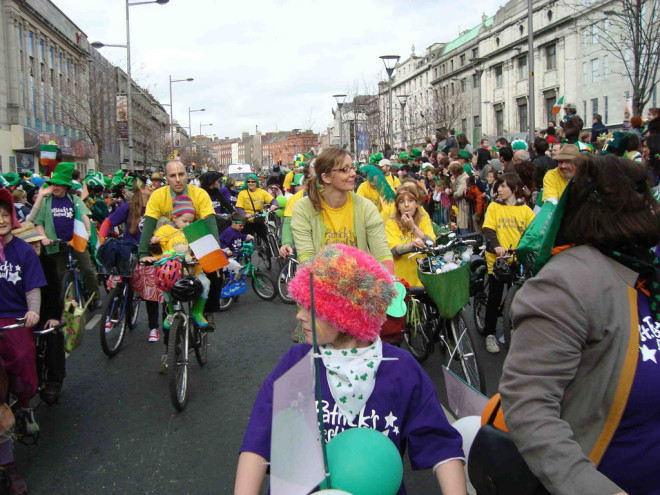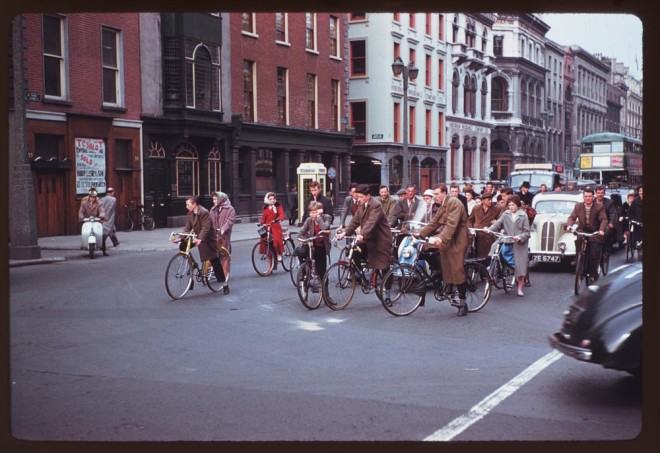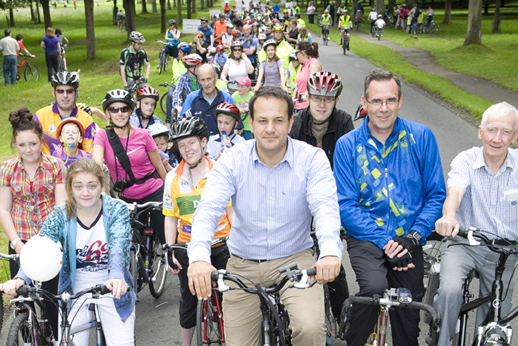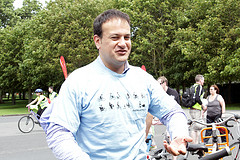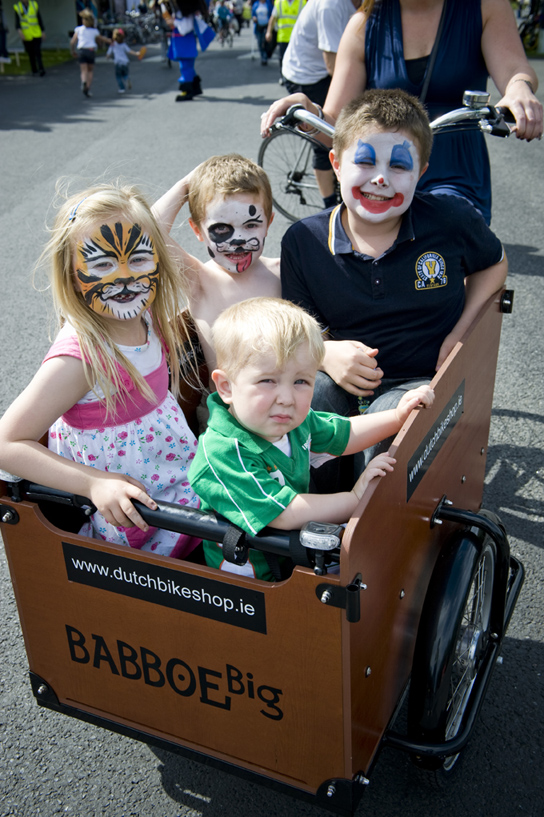
Member of the Month: Ireland: The Land of Cyclists?
When you think of Ireland, thoughts often drift to pints of Guinness, shades of green, rain, shamrocks, leprechauns, Irish music and …errr bicycles!? Well in actual fact, Ireland is undergoing somewhat of a bicycle renaissance. Colm Ryder, Secretary of the Dublin Cycling Campaign gave ECF the latest on the Irish Cycling Scene, and some recent successes achieved.
Cycling in Ireland follows a similar story encountered in most of Western Europe. People used to ride their bicycles. Then the 20th century came along and public space was carved into thoroughfares for automobiles. Henry Ford, after rolling out the first T-model ford in 1908, would be pleased to note that while less than one in ten people owned a car in the 60’s, today almost every second person owns four wheels and a steering wheel.
Colm Ryder from the Dublin Cycling Campaign tells me that the story is, “very similar to other EU countries. Ireland had very high volumes of cyclists and then as people got richer cycling levels dropped down below 2%”. But it’s not all bad news and Colm tells me that “it’s starting to creep up”.
ARTICLE UPDATE: 21/12/2011
Since posting this article, the position of Dublin Bicycle Officer was threatened to be axed. Due to concerted lobbying by the Irish cycling community together with the ECF the posting has been extended for at least another 6 months. Check out:
http://www.irishtimes.com/newspaper/breaking/2011/1221/breaking46.html
Indeed it is. The most recent figures in Dublin pin cycling modal share at a respectable 4%. Contrast this with Britain’s capital and things in Dublin are looking good: London has an approximate 2% modal share. Even better, Ireland has set itself the task of boosting the national cycling modal share to 10% by 2020 under its government adopted National Cycling Policy Framework. The economics of transport, i.e. moving more people with less space means that the city of Dublin cannot do without cyclists.
A force to be reckoned with: Dublin Cycling Campaign
One of the driving forces behind Dublin’s rise in cyclists is most definitely the Dublin Cycling Campaign. With a sleek shiny website, a regular voice in the media, and an undeniable influence on Dublin’s cycling scene, it came as a shock to learn that it was entirely staffed by volunteers.
“We have lot of positive energy. We have a structure, a chairman, an AGM, an elected board…we’re well organised,” says Colm. I’m told that to make your voice heard, you really need official recognition by the statutory authorities and by the different planning committees. Without this, it’s difficult for advocacy groups to have a lasting impact.
“Cooperating and discussing with local engineers, politicians and administrators was essential,” Colm tells me, “and it’s been a plus for the organisation and a plus for the city.”
The Campaign also has a very strong social element, being involved in a number of National Festivals and Music Events, with regular social cycles. And without a doubt, Dublin Cycling Campaign has a lot to celebrate. They played a big role in bringing about 30 km/h speed limits in the city center and managed to get Ireland’s Transport Minister wearing one of their T-shirts during National Bike week. Despite the fact that the Minister is a qualified medical doctor, the Campaign has yet to get him to publicize the strong links between increased cycling and public health.
Another great success was winning the “better together” video competition. The €3000 prize money is likely to travel a long way. When quizzed about making the video, Ryder explains with a grin that “Being Ireland, the day we made the video it rained. It was miserable. It took nearly 20 shoots to do it. We were wet cold and anything else you want to mention”.
But if cycling manages to flourish in Belgium, the Netherlands and Denmark, it's not going to be rain that stops the masses from taking to two wheels.
Bike Sharing at its Best
It’d also be hard to talk about Dublin cycling without mentioning the amazing bike share scheme. As of July 2011, Dublin Bikes has had over 58,000 subscribers and 2.2 million trips since its launch. It is without a doubt the successful scheme in Europe. It would also appear that Dublin’s success may just be exported to other parts of the country with the Minister of Transport stating he was in favor of extending it to regional cities such as Galway. You’d also be hard pressed to say that bike sharing hasn’t helped normalize the image of cycling. Colm quips that “if you’re not going to be hit by a Dublin bike, you’re going to see a couple of them”. And what’s more, sleek sexy chic cycling has also gripped the capital.
There’s still some way to go…
Undoubtedly, cycling in Dublin and Ireland is a far cry from being perfect. Infrastructure can still be a “hodge-podge of everything”and there are very few segregated cycle tracks in the city. Although Ireland does have its very first National Cycling Manual which gives guidance to local authorities Colm tells me that “this doesn’t prevent bad design”. Infrastructure is still a long way off from best practice and perceived road safety often keeps many women from riding bicycles. Austerity has also hit hard, and the campaign is fighting to keep a Dublin City Cycling Officer in position due to a cut in funding.
But on the whole things are looking up. Copenhagenize’s cycling city index rated Dublin in the top ten cycling cities. Now, it’s time for both the national and local Government to put the necessary funding and personnel in place and push hard to reach the ambitious targets set out in the National Cycling Policy Framework.
Colm knows the Dublin Campaign has some hard work ahead : “From our point of view, our challenge for is to try to keep those targets on track.”
Dublin Cycling Campaign's very successful 'Join Us' Video.
Colm Ryder-Secretary, Dublin Cycling Campaign- is a civil engineer, who has been working in the environmental field for a long number of years. Over the past 10 years in particular he has been busy working with statutory authorities on the promotion and improvement of cycle facilities. Colm, as well as being a lover of the outdoors also loves his music, and takes every possible opportunity to indulge.
Contact the author
Recent news!
Upcoming events
Contact Us
Avenue des Arts, 7-8
Postal address: Rue de la Charité, 22
1210 Brussels, Belgium

